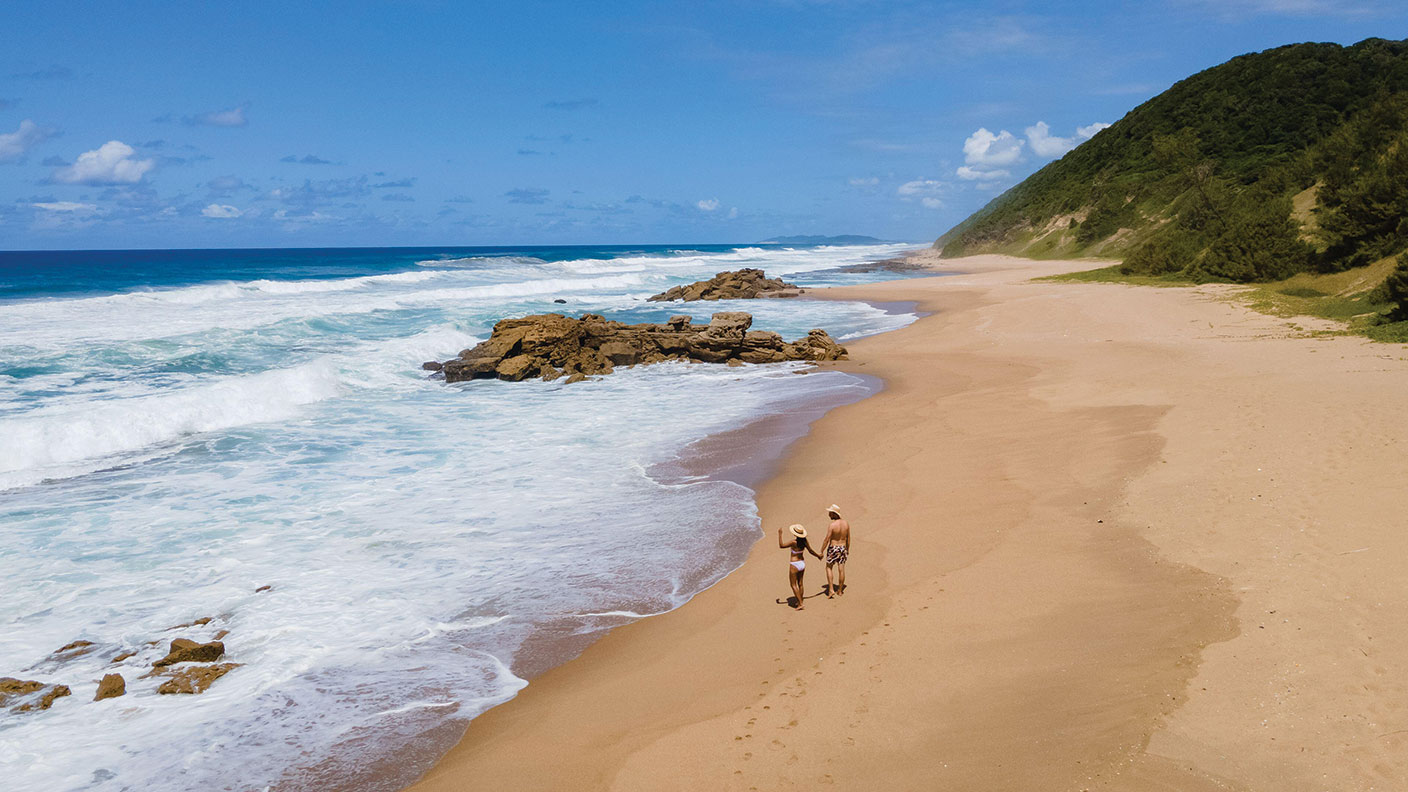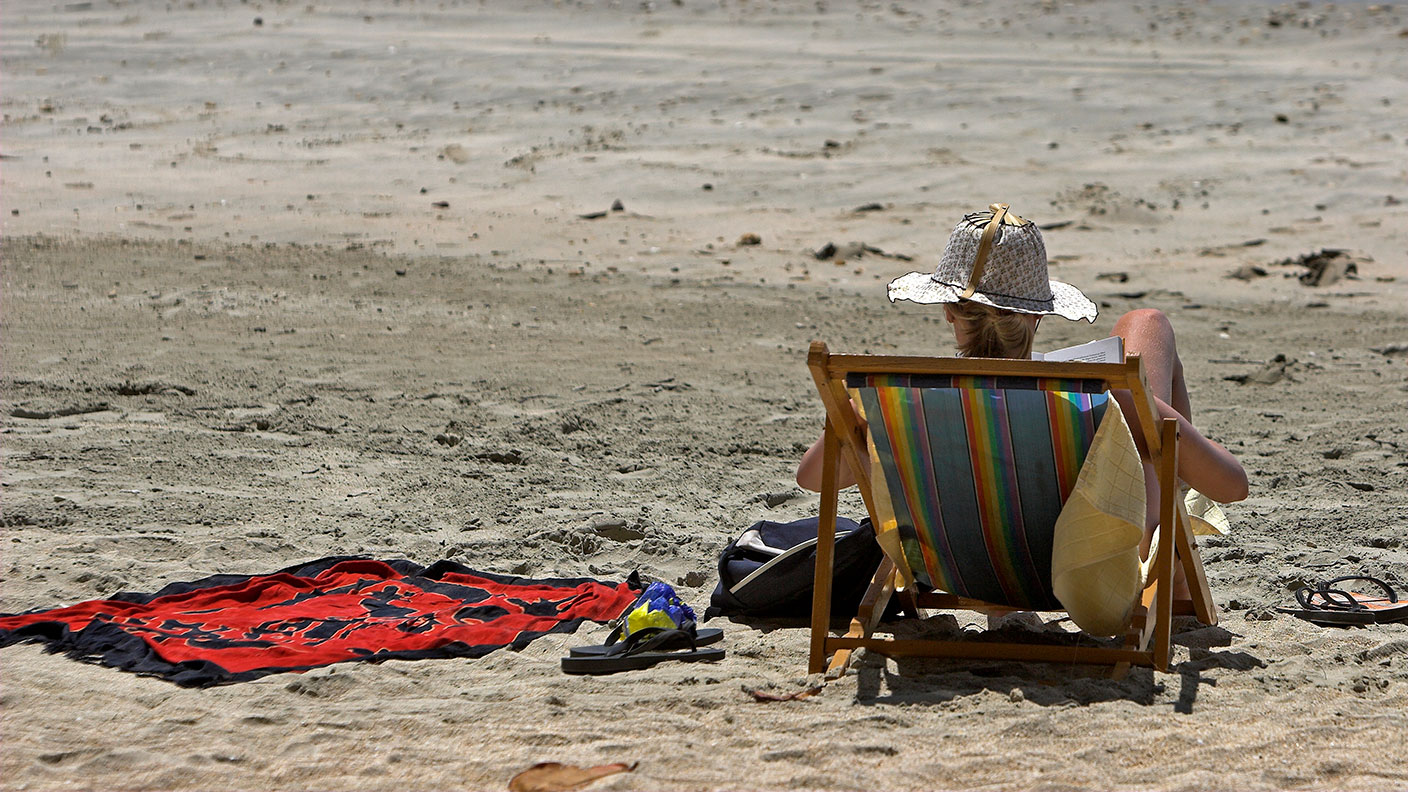Disasters, bunkers and financial collapse: a little not-so-light holiday reading
Merryn Somerset Webb picks a selection of books for you to dive into wherever you are holidaying this summer.


Get the latest financial news, insights and expert analysis from our award-winning MoneyWeek team, to help you understand what really matters when it comes to your finances.
You are now subscribed
Your newsletter sign-up was successful
Want to add more newsletters?

Twice daily
MoneyWeek
Get the latest financial news, insights and expert analysis from our award-winning MoneyWeek team, to help you understand what really matters when it comes to your finances.

Four times a week
Look After My Bills
Sign up to our free money-saving newsletter, filled with the latest news and expert advice to help you find the best tips and deals for managing your bills. Start saving today!
Usually when I think of you reading the books I suggest for the summer I picture you on a plane and a beach, so I try to make them not too heavy and not too traumatic.
This year I feel less constrained.
A history of disaster
First up is Niall Ferguson’s general history of disaster: Doom, The Politics of Catastrophe. Think of something terrifying – pandemics, volcanic eruptions, nuclear accidents, tsunamis – and you’ll find it here. The key thing to pull out of Doom is that while we might be great believers in human ingenuity, incompetence is equally impressive.
MoneyWeek
Subscribe to MoneyWeek today and get your first six magazine issues absolutely FREE

Sign up to Money Morning
Don't miss the latest investment and personal finances news, market analysis, plus money-saving tips with our free twice-daily newsletter
Don't miss the latest investment and personal finances news, market analysis, plus money-saving tips with our free twice-daily newsletter
That makes the distinction between man-made and natural disasters something of a “false dichotomy”. Famines are the obvious example. Think of the Irish famine of the late 1840s, Mao’s Great Hunger, two Soviet famines (1921-1923 and 1932-1933) and Bengal in 1943.
Failed harvests played their part, but mass starvation was a result of government or market failure. The same is true of everything from floods – floodplains and bad drainage – to the Hindenburg airship – you could blame the lightning for it burning from “nose to tail in 34 seconds” but the pilot’s risky “high landing” did not help.
Covid, too, is perhaps in the same category. Natural or not, says Ferguson, the response to it has been a classic example of “bureaucratic sclerosis”. Despite being technically prepared for a pandemic, civil servants everywhere served up a catalogue of mistakes, including testing, tracing, pointless panics over the wrong bits of equipment and ill thought out lockdowns. These errors mostly made things worse. History is mostly about progress but it is punctuated by “unexpected disruptive events” we just aren’t good at preparing for.
What next? Ferguson’s final chapter dwells on the miseries that might be yet to come: a more lethal pandemic, alien invasion, environmental collapse or “tiny black holes that would swallow up the planet”. Then there’s unfriendly AI: what if we tell machines to stop climate change and they decide the best way is to eliminate people?
A bit of bunker tourism
Enjoying your holiday? How about a nice underground bunker next year? Just in the nick of time comes “urban explorer” Bradley Garrett’s Bunker: Building for the End Times, a glorious yomp through the “disaster architecture” fantasies of the parts of the global population living with constant existential anxiety.
This includes governments (Switzerland has bunker capacity for 8.6 million people), the US’s “preppers” and the super-wealthy, some of whom see “survival of the richest” as a perfectly reasonable part of the endgame. Garrett takes us to panic rooms in gated communities, refurbished wartime ammunition stores, New Zealand estates (before the pandemic, the country was considered the best place to sit out even the worst Ferguson can think of) and plans for whole communities to live for years underground.
I’m not mad for the basic options, although I am getting a survival bag so that I live for five days longer than you do. But I am keen on The Survival Condo – once a Cold War missile silo, now an “opulent” bunker complete with apartments, one done as a log cabin complete with fake fire. They will come complete with supermarkets and yoga classes. Oh, and guns. Lots of guns. If I need a bunker to participate in the “survival and rebirth story” (yes, prepping does have religious overtones) I’ll take this over a buried shipping container any day.
You don’t need to ask what’s driving this urge to dig down. Just see Ferguson’s list! But it is interesting that money looms large. “I think the economy goes down first” one US prepper told Garrett. “The country is $23-something in debt. How do you recover from that?” Well quite.
How the Asian financial crisis set up our current crop of bubbles
And so we turn to Russell Napier’s The Asian Crisis: Birth of the Age of Debt. Napier was working in Hong Kong in 1997, and the book is partly a compilation of the excellent notes he wrote during this “collapse of the entire financial system” and partly an explanation of how the crisis set us on our current financial path. It gave us the deflationary impulses that gave us the low rates that caused the Great Financial Crisis, that then gave us quantitative easing, asset bubbles and of course the inflation we now see – the inflation that will eventually crash markets.
The past decade has been good to investors – the endless easy monetary policy Napier writes about has given us long and happy bull markets. Preppers worry about YOYO (you are on your own – so be resilient). For this cycle’s equity investors it has been more YOLO (you only live once – so bet big).
• For 30% off a copy of The Asian Crisis, order direct from the Harriman House website and put in the code AFC30.
A history of market speculation
Some would have you believe that this is a new dynamic. It is not. For evidence you will need Playing the Market: Retail Investment and Speculation in Twentieth Century Great Britain by Kieran Heinemann. It turns out that investment and speculation (there is a “hazy line” between them) have long been “mass activities” in the UK.
In 1850 about 250,000 people owned shares. By the 1930s it was 1.3 million and The Economist was happily noting the “great increase in the investment habit among classes in which it was formerly uncommon”. By the 1950s everyone was at it. A study by the Acton Society Trust found factories with “gambling groups” of workers, one of whom reported that “a man in my shop who used to back horses told me that he had found a better method – industrial shares – and now he has got me doing it too”.
Sound familiar? Thousands of new investors have entered the markets in the past two years. When it all comes crashing down (impossible to time, but inevitable) they may find they feel a bit YOYO.
With that in mind, here is one bit of prepper advice. “Three is two, two is one, one is done,” meaning always have a back-up plan. You might not always make it to your bunker when disaster strikes – ask the Russian oligarchs who left leaving for New Zealand too late and spent lockdown in Moscow. Look at alternatives. Translate that to money and the advice is similar – diversify.
A dreich novel to end with
Finally, a bestselling novel – Summer Water by Sarah Moss. Some will want you to read it for its intense depictions of family relationships. But I offer it to you (in particular to readers in the travel industry) for its relentless rain. The characters are on holiday in Scotland.
They are never really dry. “What’s got into you?” says Mum, “Cheer up, it can’t rain much longer.” It does. This year you might be convinced you need to buy a domestic holiday home. But let’s not forget one of Napier’s core rules for analysts – no extrapolation allowed. Next year you probably won’t want one.
• This article was first published in the Financial Times
Get the latest financial news, insights and expert analysis from our award-winning MoneyWeek team, to help you understand what really matters when it comes to your finances.

-
 The downfall of Peter Mandelson
The downfall of Peter MandelsonPeter Mandelson is used to penning resignation statements, but his latest might well be his last. He might even face time in prison.
-
 Default pension funds: what’s in your workplace pension?
Default pension funds: what’s in your workplace pension?Default pension funds will often not be the best option for young savers or experienced investors
-
 Should you invest in rum?
Should you invest in rum?Analysis Old rum could be worth thousands of pounds. Is it worth auctioning off?
-
 10 cheapest countries to visit
10 cheapest countries to visitTravel We look at the cheapest countries to visit where your money will stretch the furthest without compromising on quality
-
 Best cards for travel abroad
Best cards for travel abroadAdvice We weigh up the best cards for travel, whether you’re going on holiday or you go abroad regularly
-
 The best credit cards for cashback
The best credit cards for cashbackThe best credit cards for cashback can help you earn rewards on everyday spending. We list some of the top deals on the market
-
 A South African adventure
A South African adventureReviews From buzzy Johannesburg to big game drives, South Africa has it all, says Katie Monk
-
 Villa Gaia Rock: perfect harmony in Corfu
Villa Gaia Rock: perfect harmony in CorfuReviews Blend in with your surroundings at the new Villa Gaia Rock in Corfu.
-
 Holiday reading: five books to make sense of the 1970s – and the 2020s
Holiday reading: five books to make sense of the 1970s – and the 2020sReviews With raging inflation, booms, busts and political crises, the 1970s has a reputation as a relentlessly awful decade. But things aren’t that simple, says Merryn Somerset Webb. Here, she picks five books to put it all in context.
-
 Indulge your wild side with a safari in deepest Kent
Indulge your wild side with a safari in deepest KentReviews Get up close to the animals at Port Lympne Hotel and Reserve, says Matthew Partridge